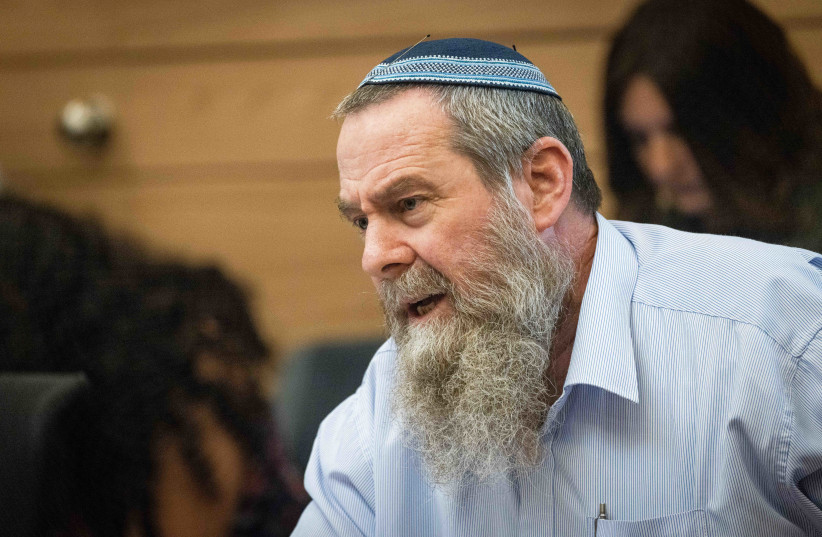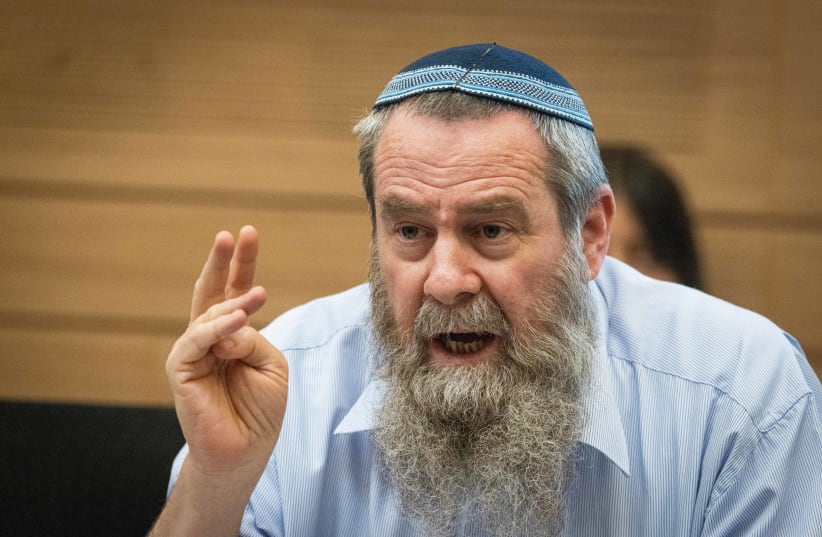Twenty-four percent of the religious-Zionist community believes Noam MK Avi Maoz represents the values of religious Zionism, compared with 50% who say he does not, according to a new survey.
The poll, which was conducted by Panels Politics on behalf of the Institute of Jewish and Zionist Research, was intended to analyze the views and opinions of the religious-Zionist community in Israel following the recent election and the disqualification of Shas chairman Arye Deri as a cabinet minister by the High Court of Justice.
Maoz was a member of the Religious Zionist Party (RZP) bloc during the election for the 25th Knesset and represents a subgroup called Hardal, which is nationalist haredi (ultra-Orthodox). He is considered to be extreme on issues such as LGBTQ+ rights, family values and topics relating to religion and state.
Among Hardal Israelis, 58% said they believe Maoz represents religious-Zionist values, compared with 24% who said he does not.
What did the survey show?

Regarding the religious character of the government, the survey showed divergent views within the community. Asked whether they consider the coalition to be more religious-Zionist or Haredi in nature, 55% of those who identified as Hardal considered the actions of the current government as consistent with their own religious-Zionist values. When the sample group ranged in religious background, 42% said that was the case.
An overwhelming majority of Hardalim (92%) said the government is meeting their expectations when they voted and that they are happy with it.
“There is a major contrast between those who promote themselves as the representatives of the religious-Zionist community and the extent to which the community actually identifies with them, their values and policies,” Daniel Goldman, founder of the Institute for Jewish and Zionist Research, told The Jerusalem Post.
In another question in the survey, 64% of the religious-Zionist community said they agreed with the decision of the High Court to disqualify Deri as a minister due to his criminal background.
The Hardal community stands in stark contrast with the general religious-Zionist community and believes Deri’s appointment as a minister was reasonable (36% vs 34%), the survey found.
“This is dramatic when we see the support that Deri received from all the religious parties, versus the majority view of the religious-Zionist Israelis themselves, who support the High Court’s ruling disqualifying him to serve as a minister in the government,” Goldman said. “A further example of this is the dissonance with respect to Maoz, who’s portfolio includes controlling large parts of the content of the education system, while receiving a very low level of support within the religious-Zionist community.”
In a campaign launched over the weekend, thousands of emails were sent by members of the Reform movement around the world – from the US, Europe, Canada, South Africa, England and Australia – to Israeli embassies and consulates, as well as to Justice Minister Yariv Levin and Prime Minister Benjamin Netanyahu, urging them to preserve democracy ahead of the planned judicial reforms.
“We are deeply concerned by the dangerous new legislation that would undermine the Israeli legal system and Israeli democracy in order to serve extremist and short-sighted political interests,” they wrote. “We will not stay silent when Israel’s democracy is in danger. The only Jewish state in the world must remain a democracy that protects the rights of all its citizens. We call upon you to stop these dangerous initiatives now.”
“The new proposed legislation in Israel would allow the government to act with impunity by severely curtailing the power of the High Court and the attorney-general to serve as checks on the government’s power,” they added.
“There is no precedent for a democracy with a system that has no checks and balances,” the letter said. “Without Israel’s High Court, there are no restraints on the government and no protections for human rights. A country that cannot protect human rights, whose power is centralized in the government with no checks and balances on that power, is not a true democracy.”
Regarding the intervention of Diaspora Jews in Israeli politics, the campaign organizers wrote: “Israel bills itself not only as a country for its citizens, but as the Jewish homeland,” and “these initiatives, should they come to pass, will impact Jews around the world, particularly when it comes to issues relating to the recognition of Judaism, conversion and immigration.”
Diaspora Jews “have a say in how Israel determines” their “rights and status,” they wrote.
